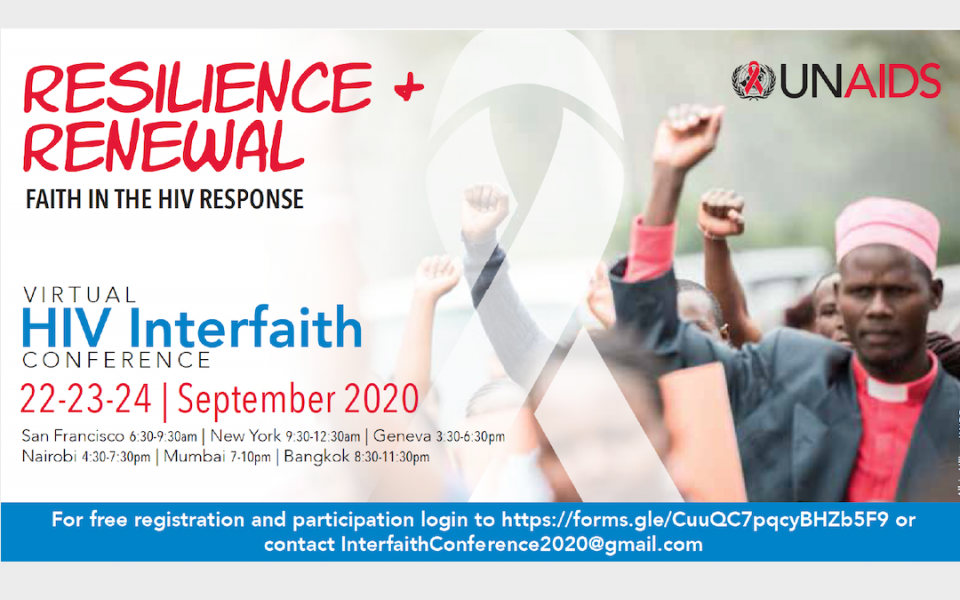
Update: See the interview with Bishop William Swing, URI President and Founder, by Subhi Dhupar, URI North India Regional Coordinator. (Scroll down the page until you see Bishop Swing's video.)
Original Invitation:
Please Save the Date for the HIV Interfaith Conference, Resilience & Renewal: Faith in the HIV Response, that will take place virtually on 22-23-24 September 2020.
The virtual HIV Interfaith Conference, Resilience and Renewal, will provide a space for sharing, capacity building and advocacy among people of faith involved in HIV and AIDS. It will be an opportunity to celebrate the many resilient people engaged in the HIV response; and an occasion to recommit faith leaders and communities to address HIV-related stigma and discrimination, increase access, and promote human rights.
Subhi Dhupar, Regional Coordinator for URI North India and Afghanistan, is part of the organizing committee for this event.
Resilience and Renewal will create a space for dialogue and an opportunity to identify joint actions to address some of the challenges and emerging issues to the achievements of the 2020 and 2030 HIV-related targets.
The event is organized by faith groups’ representatives around the world and people living with HIV through the support of the UNAIDS-PEPFAR Faith Initiative.
Venue: Virtual Platform
Dates: 22-23-24 September 2020
Languages: English & French
Registration and participation are free of charge.
Please register at this link.
The Interfaith Conference is guided by six outcome objectives. Those objectives are to:
- Increase the knowledge base, intention to act, and positive attitudes of participants in relation to advocacy, sensitive topics, and research/evidence;
- Celebrate and get inspired by resilient people engaged in the HIV response;
- Highlight and describe the distinctive roles of faith leaders and communities to a multi-sectoral, comprehensive response to HIV in local, national, and global contexts;
- Build collaboration between faith groups and other sectors;
- Launch an Interfaith Platform for learning, capacity building, networking, action, and advocacy as a follow-up to the Interfaith Conference; and
- Ensure that the experiences and perspectives of young people, those living with HIV, and members of marginalized communities disproportionately impacted by HIV inform content and action steps coming out of the conference.
